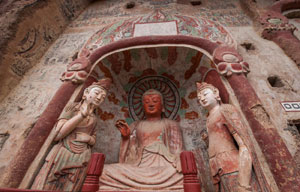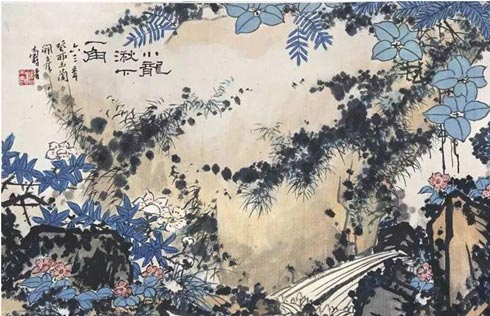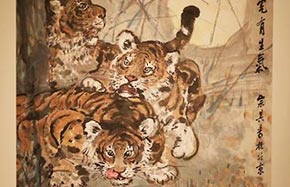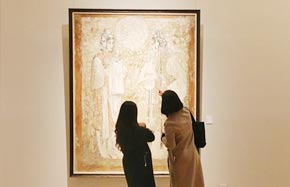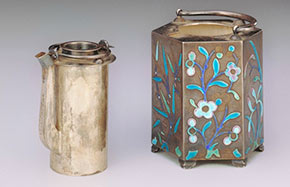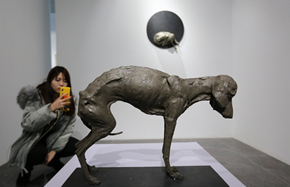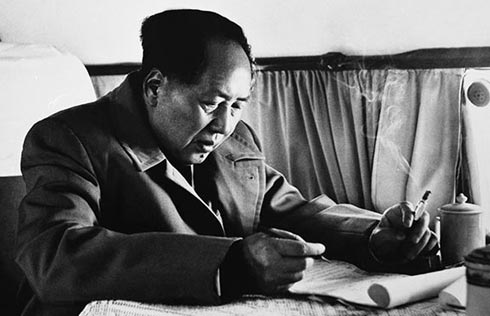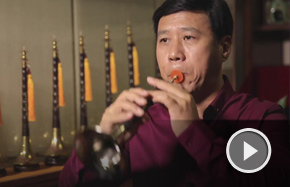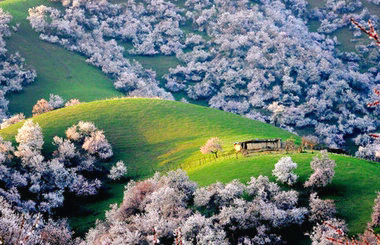Creative industry taps into ancient culture
An animated series based on Buddhist stories from Gansu province is soon to be broadcast on TV, as emerging creative industries tap into ancient Chinese culture.
Legend of Dunhuang is a 12-episode series that will be screened on as-yet unconfirmed channels before the end of 2013. It is adapted from Buddhist artwork in the Mogao Grottoes, home to more than 2,000 colored sculptures and 45,000 square meters of frescoes in 735 caves carved along a cliff.
Six episodes that were put online in October 2007 have attracted a "whopping" number of clicks, according to Wu Qian, deputy general manager of the Lanzhou Nante digital technology group, producer of Legend of Dunhuang.
"We've done thorough research into the history and culture of Dunhuang. This desert oasis and crossroads on the ancient Silk Road acted as a depository for Buddhist art for around a millennium," said Wu, "and our production group has made affiliated culture products featuring cartoon characters."
The series is just a stepping stone in the company's plans to build a cultural and creative industrial park in Gansu. An investment of 1 billion yuan ($163 million) was made in the project in 2012.
It aims at bringing out more products based on rich cultural resources, Wu said, adding that another animation adapted from the legend of Fu Hsi (Fu Xi), a heavenly sovereign character in Chinese mythology who is reputed to be the inventor of writing and fishing, is under preparation.
The company is among those growing out of the nation's rich ancient culture with government support.
Gansu hosts more than 7,000 historical relics sites and is part of the ancient Silk Road, a 7,000-km-long pathway created 2,000 years ago by camel-driving merchants carrying silk and porcelain to Western Europe and spices to the Far East. But its affluent cultural resources have not translated into a boon for Gansu's economy.
In 2012, the State Council approved Gansu to build the nation's first Chinese Civilization Inheritance and Innovation Zone. Zhang Guangzhi, deputy governor of Gansu, said the province has offered beneficial policies such as financial support and tax preferences to attract cultural enterprises.
In the first half of this year, 195 deals with an investment of 75.9 billion yuan were inked in this sector, he said.
The annual output of Gansu's cultural industry reached 7.82 billion yuan in 2012, accounting for 1.4 percent of the province's gross domestic product. Provincial authorities are planning to raise that proportion to more than 5 percent in 2020.
|
|
|
| Maiji Mountain Grottoes |





